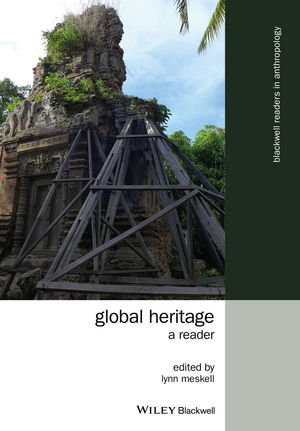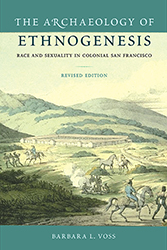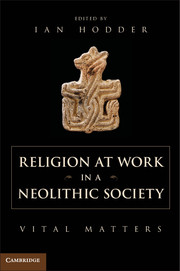Affiliated Faculty
Robert B. DunbarW.M. Keck Professor of Earth Science Rob Dunbar’s research and teaching interests include climate dynamics, oceanography, marine ecology and biogeochemistry. He is also interested in environmental policy directed towards problem-solving. His research group studies global environmental change with a focus on air-sea interactions, tropical marine ecosystems, polar climate, and biogeochemistry. Current field areas include the Galápagos Islands, Great Barrier Reef, Antarctica, the Line Islands, Easter Island, Patagonia, Tierra del Fuego, and Palau. Rob’s research team is currently working on several projects in Antarctica to assess the impacts of climate change on Southern Ocean ecosystems and C-system chemistry. His team is also well into a multi-year effort to collect deep sea corals to better understand their ecology as well as their self-contained records of change in the deep sea. In 2009, Rob was elected as a Trustee for the Consortium for Ocean Leadership in Washington D.C. Rob was the founding director of Stanford’s Emmitt Interdisciplinary Graduate Program in Environment and Resources (E-IPER). He received his Ph.D. in Oceanography from Scripps Institution of Oceanography. He is also an avid nature photographer with his photos being featured in many publications. InterestsRadiometric Age-Dating,Climate Change, Holocene Variability throughout the Pacific Ecosystem, Dynamics Isotope Geochemistry Environmental Science Contactdunbar@stanford.edu | ||
 | Paulla Ebron Associate Professor of Anthropology Ph.D. Massachusetts Amherst, 1993 Paulla Ebron joined the department in 1992. Ebron is the author of Performing Africa, a work based on her research in The Gambia that traces the significance of West African praise-singers in transnational encounters. A second project focuses on tropicality and regionalism as it ties West Africa and the U.S. Georgia Sea Islands in a dialogue about landscape, memory and political uplift. This project is entitled, "Making Tropical Africa in the Georgia Sea Islands." This summer, she will travel with a team of students to Charleston, South Carolina, to participate in a field school in collaboration with the Avery Research Center for African American History and Culture. Interests Research interests include commoditization of culture, heritage, memory and history, performance, and writing culture. Research areas include West Africa and the transatlantic connections. Link www.stanford.edu/dept/anthropology/cgi-bin/web/?q=node/103 | |
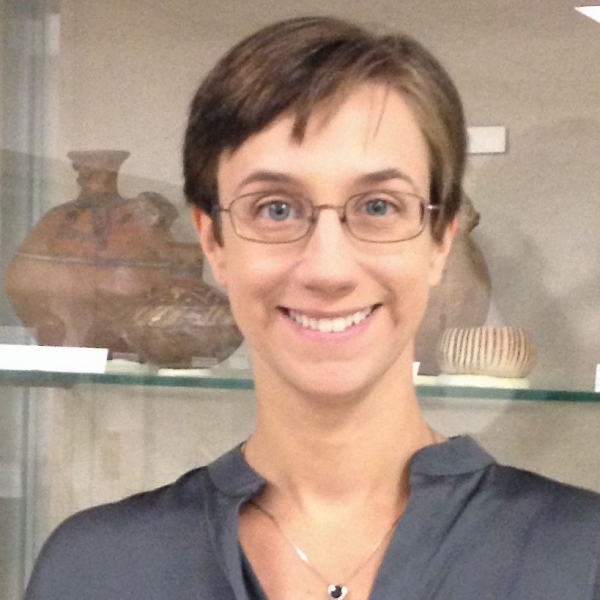 | Christina HodgeAcademic Curator and Stanford Archaeology Collections Manager I recently joined the Archaeology Center as Academic Curator and Collections Manager for the Stanford University Archaeology Collections, working to steward these diverse cultural items and support their engagement across campus and beyond. I earned an AB degree from Harvard University in anthropology and an MA in archaeological heritage management and PhD in historical archaeology from Boston University. I arrive after many years in curation, repatriation, university engagement, and community collaboration at Harvard’s Peabody Museum, where I co-directed the Harvard Yard Archaeology Project. While there, I also developed courses in repatriation, museum ethics, material history, and archaeological methods. My first book, Consumerism and the Emergence of the Middle Class in Colonial America, was published in 2014. I am currently working on several material culture-based projects on identity, consumerism, and the tensions between individual and institutional authority in early America, as well as on the social roles and pedagogical potential of museum collections. Interests Museum anthropology, historical archaeology, institutional history, and archaeologies of identity, colonialism, and consumerism Contact Stanford Archaeology Collections; Margaret Jacks Hall, building 460, room 020 650-736-2833 | |
 | Mark Edward LewisKwoh-Ting Li Professor in Chinese Culture, Department of East Asian Languages and Cultures Mark Edward Lewis’s research deals with many aspects of Chinese civilization in the late pre-imperial, early imperial and middle periods (contemporary with the centuries in the West from classical Greece through the early Middle Ages), and with the problem of empire as a political and social form. InterestsEarly Chinese history; conceptualization of space and time in the late Warring States and Han periods, as elements of the formation of a world empire. Contactmel1000@stanford.edu | |
 | Apurva Mehta Apurva Mehta is a staff scientist at SLAC National Acc. Lab with more than 20 years of experience in synchrotron based x-ray techniques. He has been using these techniques to probe a wide range of scientific and technological questions; from structure-property relationships in quantum materials to the firing protocols for Greek and Roman pottery. Contactmehta@slac.stanford.edu | |
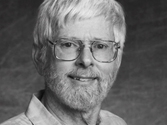 | Mike MoldowanProfessor-Research (Emeritus), Department of Geological and Environmental Sciences I teach courses related to the subject matter of my research. The technology and its application in aspects of etroleum exploration and production, environmental analysis, and archeological aspects are introduced in the lecture course, Petroleum Geochemistry in Environmental and Earth Science. For those students interested in applying molecular geochemistry in their thesis research I teach a follow-up course called Laboratory Methods in Organic Geochemistry. InterestsGeoarchaeology, organic and petroleum geochemistry, and molecular fossils Contactmoldowan@stanford.edu Linkwww.ges.stanford.edu/people.profile.php?p=j.moldowan&pid=379&type=faculty# | |
 | Amos NurProfessor Emeritus, Department of Geophysics InterestsRock physics, tectonophysics, fossil energy exploration, earthquake archaeology Linkhttp://pangea/people/faculty/amos-nur Contactanur@stanford.edu | |
 | Grant Parker Capetonian-born Grant Parker studied at the University of Cape Town and taught initially at the University of the Witwatersrand (Johannesburg). After graduating from Princeton he especially relished the interdisciplinary environment of Ann Arbor, where he was a postdoc in the Society of Fellows. Though his day-job is in classics, he has tended to seek topics where colonial histories intersect with ancient pasts. Earlier work has examined Greek and Roman image-making of the east (The Making of Roman India, 2008), and of Mediterranean travel in comparative perspective (Mediterranean Passages: readings from Dido to Derrida, co-edited with miriam cooke and Erdag Goknar, 2008). Current projects involve the ancient Roman lives of Egyptian obelisks, and the receptions of ancient Greece and Rome in South Africa. Interests Obelisks, the Nile, maps, orientalism, Mediterranean, history of scholarship | |
 | Peter Vitousek Professor, Biological Sciences InterestsGeoarchaeology, Nutrient cycling in tropical and temperate forests. Regulation of cycling of nitrogen, phosphorus, and several other nutrients by using chemical analysis of soil, water, and gas samples from field sites. Biological invasion by exotic species, and sources of elements during long-term soil and ecosystem development in the Hawaiian Islands. Contactvitousek@stanford.edu | |
 | Connie Wolf The John and Jill Freidenrich Director, Cantor Arts Center Connie Wolf became the John and Jill Freidenrich Director of the Cantor Arts Center on January 1, 2012. Wolf arrives at Stanford at a transformative time for the arts on campus, as the university develops its new arts district with the Cantor Arts Center at its core. In her new position, Wolf is working to make the museum and the arts a more integral part of the learning experience for students, developing innovative interdisciplinary initiatives, and building the collection to be a more vital resource for research and teaching. After graduating from Stanford, where her degree was in East Asian studies, Wolf worked at the Museum of Fine Arts in Boston, and then was a Senior Research Assistant at Project Zero at the Harvard Graduate School of Education, working on a comparative study of arts education in the U.S. and China. She was a Jacob Javits Fellow in photography at the California Institute of the Arts and also worked at the Museum of Contemporary Art, Los Angeles on photography exhibitions and interpretive strategies. She was then a Research Associate in school reform and Warren Weaver Fellow in the Rockefeller Foundation’s arts and humanities division. She went on to an appointment as Associate Director for Public Programs and Helena Rubinstein Curator of Education at the Whitney Museum of American Art. In 1999, Wolf became director and CEO of San Francisco’s Contemporary Jewish Museum, where she established an exemplary record of drive and innovation. Under her leadership, a small community-based organization was elevated into a major institution with a new building, professional staff, and strong presence in a city of cultural richness. | |
 | Xiaoneng YangPatrick J.J. Maveety Curator of Asian Art at Stanford University's Iris and B. Gerald Cantor Center for Visual Arts Xiaoneng Yang, Patrick J.J. Maveety Curator of Asian Art at Stanford University's Iris and B. Gerald Cantor Center for Visual Arts, specializes in areas that transcend the borders of traditionally defined disciplines, such as archaeology, art history, and epigraphy. His recent publications include The Golden Age of Chinese Archaeology: Celebrated Discoveries from the People's Republic of China, New Perspectives on China's Past: Chinese Archaeology in the Twentieth Century, Reflections of Early China (Chinese title: Lingyizhong gushi or An Alternative History), Tracing the Past, Drawing the Future: Master Ink Painters in Twentieth-Century China, and Hello, Shanghai — A History of Everyday Life in the Reform Era. InterestsChinese archaeology, Early Chinese civilizations, cultural heritage management, visual culture, cultural exchanges before the Silk Road. Contactxnyang@stanford.edu | |
| back to top |

